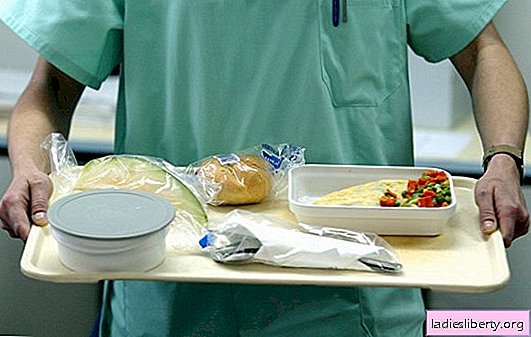
The vocal cords are small muscle formations that are located in the pharynx. They form a kind of glottis, so that a person can make sounds. Consider in more detail the causes of inflammation of the vocal cords and the main methods of treatment for this condition.
The main causes of inflammation of the vocal cords
This painful condition can develop for the following reasons:
1. Complications from untreated flu or measles.
2. Pneumonia, which caused inflammation of the vocal cords. It is important to know that this disease in itself is very dangerous, since it causes many complications, and in combining it with sore throat it requires immediate hospitalization and treatment of the patient.
3. Scarlet fever.
4. Rhinitis.
5. Tonsillitis.
6. Strong hypothermia.
7. Smoking (tobacco smoke at the same time acts as a direct irritant and with frequent contact with the throat mucosa can easily cause redness, pain, perspiration and inflammation of the ligaments).
8. Inhalation of harmful chemicals or dust. This is often observed when working in factories or other enterprises in which a person constantly has to inhale dirty air.
9. An allergy that caused inflammation of the vocal cords. In this case, dust, plant pollen, fluff, food, etc. can be an allergen.
10. Frequent intake of alcoholic beverages that irritate the pharyngeal mucosa and cause inflammation.
11. The use of very spicy dishes, because of which a person can develop not only inflammation of the ligaments, but also the discharge of sputum with blood can begin (this often happens in countries where people eat spicy dishes).
12. Overstrain of ligaments due to strong scream.
Symptoms and manifestations of inflammation of the vocal cords
The main symptoms of inflammation of the vocal cords are:
1. Loss of voice.
2. Dry throat.
3. Sore throat.
4. The appearance of dry cough.
5. Hoarseness of voice.
6. Sore throat, which is worse when swallowing.
7. Headache.
8. An increase in body temperature.
In addition, there are several forms of inflammation of the vocal cords, each of which is accompanied by individual symptoms:
1. The catarrhal form of inflammation develops as a complication from the flu. In this case, the person will suffer from coughing, itching and sore throat. This condition does not require special therapy. It is only necessary to cure the underlying disease that caused it.
2. The hypertrophic form of inflammation usually develops against a background of a chronic disease. In this case, small nodes can be observed on the patient's ligaments. This makes the voice hoarse.
3. Atrophic form of inflammation is accompanied by atrophy of the pharyngeal mucosa. In this condition, a person will suffer from frequent bouts of dry cough. Sometimes at the same time he also has bloody sputum.
4. A tuberculous form of inflammation can develop when this infection enters the body. This condition is accompanied by the appearance of tuberculous ulcers in the vocal cords.
5. The diphtheria form of inflammation is accompanied by the formation of white plaque on the ligaments. It is well treated and rarely causes complications.
Vocal cord inflammation: diagnosis and treatment
An otolaryngologist will help identify inflammation of the vocal cords. He will carefully examine his nose, mouth and throat.
The main treatment methods include the following:
• drug therapy;
• physiotherapeutic treatment;
• surgery;
• folk remedies.
Drug treatment involves the intake of such groups of drugs:
1. Preparations that promote expectoration (Mukaltin, ACC, Ambroxol, Herbion syrup, etc.). They can be prescribed by a doctor in the event that inflammation of the ligaments was provoked by influenza or SARS.
2. The use of Lugol's solution is used to lubricate sores in the throat. To do this, use a cotton swab (it is more convenient to apply the medicine).
3. Medications for inflammation.
4. In acute laryngitis, the Bioparox antibacterial spray helps well. They need to be treated for at least ten consecutive days.
5. If the patient has a bacteriological lesion of the ligaments, then oral antibiotics may be prescribed. The drugs themselves are selected depending on the causative agent of the infection.
Physiotherapeutic treatment involves the following procedures:
1. UHF therapy.
2. Microwave therapy.
3. Electrophoresis with novocaine.
4. Ultraviolet radiation.
5. Gargling.
If drug therapy and physiotherapeutic treatment turned out to be ineffective, the patient is prescribed surgical treatment. This operation makes it possible to prevent the development of laryngeal cancer due to severe inflammation.
In order not to cause any complications, after the operation, you must always adhere to such recommendations:
1. For two days after the procedure, you need to be silent so as not to strain the ligaments.
2. Do not smoke within two weeks after surgery.
3. Do not eat or drink hot or cold dishes.
4. Do not eat spicy food.
5. Avoid inhalation of pungent odors that can cause ligament irritation.
Alternative treatment is considered auxiliary, and is allowed only after removal of acute inflammation of the vocal cords. It provides for the following procedures (preparation of medical recipes):
1. Inhalation with unpeeled boiled potatoes. You need to breathe the steam coming from the potatoes for ten minutes. It is advisable to cover the head with a towel.
2. Make a cocktail of yolks, olive oil and honey. It is necessary to take such a remedy in small sips after eating. It will soften the throat and return the voice.
3. Make a decoction of sunflower oil, grated ginger and raspberries. All ingredients must be in equal amounts. They need to pour a glass of boiling water and insist for twelve ches. Drink a tablespoon before eating.
4. Gargle three times a day with a decoction of onion husk (three tablespoons of husk pour half a liter of boiling water). This tool will help eliminate acute inflammation, hoarseness and relieve pain.
5. Prepare a cocktail from a glass of milk and a tablespoon of honey. Drink in small sips every hour. It is important that the product is warm, but not too hot.
6. With a sudden sore throat, when there are no medications at hand, resorption of a piece of sweet chocolate can help. It will relieve tickling and sore throat.
7. You can take this solution: mix half a glass of milk with a third glass of carrot juice. And although such a drink may not be completely tasty, it will help eliminate inflammation in the throat.
8. If a person has completely lost his voice, then a mixture of honey and horseradish can help him. To do this, grate horseradish on a fine grater, pour a glass of boiling water and insist for two hours. Eat horseradish with honey every day for a teaspoon.
9. With the appearance of severe hoarseness, you can beat a couple of yolks with butter and sugar. You need to drink such a mixture in small sips after eating.
Despite the great effectiveness of folk recipes, it is recommended to consult a doctor before using them.
Vocal cord inflammation: treatment and prevention
To prevent the development of inflammation of the vocal cords, you should adhere to such recommendations:
1. Avoid hypothermia.
2. Try not to talk in the cold, so that cold air does not get into the throat.
3. Protect the throat with a warm scarf in strong winds.
4. Strengthen the immune system. To do this, take vitamins, lead a healthy lifestyle, eat well and play sports.
5. Houses should be regularly ventilated.
6. In time to treat diseases that can cause inflammation of the vocal cords.
7. If you suffer from allergies, you should take antihistamines in advance, especially during an exacerbation of your condition (during the flowering of allergen flowers, by inhalation of dust, etc.).
8. People working in hazardous conditions need to wear masks so as not to inhale chemicals that irritate the vocal cords.
9. It is advisable to stop eating overly spicy foods.
10. When the first signs of inflammation appear, you should consult a doctor as soon as possible so as not to start your condition.











